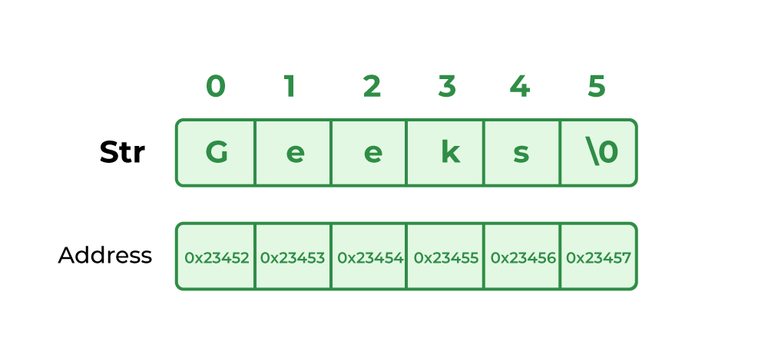Why Are Strings Immutable in Java? Exploring the Layout Decisions
Wiki Article
What Is Unalterable Strings and Exactly How It Works
In the world of programs, recognizing the idea of immutable strings is vital for producing protected and robust applications. Unalterable strings refer to strings that can not be changed after they are developed, ensuring data stability and predictability within the code. This essential concept plays an essential role in numerous shows languages and provides an one-of-a-kind approach to dealing with information. By discovering the intricacies of exactly how immutable strings operate, one can reveal a globe of benefits and opportunities that can boost the quality and performance of software program development.The Fundamentals of Unalterable Strings
Unalterable strings, as an essential concept in programming, are personality sequences that can not be altered once they are created. This suggests that once a string is assigned a worth, that worth can not be modified. In languages like Python and Java, strings are unalterable items, resulting in numerous effects in terms of memory management and information honesty.One of the crucial advantages of immutable strings is that they provide a feeling of protection in data adjustment. Considering that the content of an immutable string can not be customized, it guarantees that the initial information continues to be intact, minimizing the risk of unintended changes during program execution (Why are strings immutable in Java?). This home likewise streamlines debugging processes, as programmers can rely on that when a string is specified, its worth will not be unintentionally altered
When a new string is produced based on an existing one, rather than modifying the original string, the brand-new value is kept independently. In general, comprehending the basics of unalterable strings is vital for grasping programs ideas and enhancing code effectiveness.
Advantages of Immutable Strings
Structure upon the protection and performance benefits of immutable strings, their benefits reach improving code reliability and simplifying simultaneous programs tasks. By being unalterable, strings can not be modified after production, which gets rid of the threat of unintended changes in the data they store. This inherent immutability guarantees that as soon as a string is created, its value remains consistent throughout the program's execution, minimizing the possibilities of pests brought on by unanticipated modifications.Furthermore, unalterable strings add to code reliability by making it easier to reason regarding the state of a program. Because strings can not be changed, designers can trust that a string will certainly always hold the exact same value, streamlining debugging and upkeep initiatives. This predictability brings about much more dependable and stable codebases.

Application in Programs Languages
Within various shows languages, the consolidation of immutable strings is a basic aspect that influences just how data is taken care of and manipulated within code frameworks. The application of unalterable strings varies throughout various programming languages, with each language supplying its very own systems to sustain this concept.

On the other hand, languages like C and C++ do not have integrated assistance for immutable strings. Programmers in these languages should by hand apply immutability by enforcing guidelines within their code to avoid direct modifications to string things.
Best Practices for Working With Immutable Strings
When handling immutable strings in programming languages like Java and Python, adhering to ideal methods makes sure efficient and protected information adjustment. Among the essential finest methods is to make use of StringBuilder or StringBuffer rather than straight adjusting strings, specifically when taking care of extensive concatenation procedures. These classes supply mutable alternatives for string control, aiding to stay clear of unnecessary memory allowances and improving performance.An additional ideal practice is to use string interpolation or format functions offered by the try this out language rather than hands-on concatenation. This not just improves readability but also aids in stopping typical risks such as unintended string modifications. In addition, when collaborating with sensitive information such as passwords or API keys, it is vital to prevent saving them as plain message in unalterable strings. Making use of safe storage space devices like char selections or specialized collections for managing sensitive info assists alleviate safety and security risks connected with immutable strings.
Real-world Applications and Instances
Checking out functional applications of unalterable strings in numerous markets exposes their considerable influence on information stability and system dependability. In the healthcare market, immutable strings play a critical duty in ensuring the security and discretion of individual data. By preventing unauthorized modifications to delicate info such as medical records and prescriptions, immutable strings aid keep conformity with stringent personal privacy guidelines like HIPAA.Banks additionally take advantage of the immutable nature of strings to enhance the protection of client data and transaction documents. Immutable strings assist avoid fraudulence and unauthorized alterations to monetary information, supplying a robust protection versus cyber threats and making certain the depend you could try this out on and self-confidence of clients.

Conclusion
Ideal methods for functioning with immutable strings include avoiding direct adjustments and making use of approaches that return new string things. Real-world applications of unalterable strings consist of information encryption, caching, and string adjustment jobs.Unalterable strings refer to strings that can not be modified after they are developed, making certain information stability and predictability within click here to read the code. When a brand-new string is produced based on an existing one, rather than customizing the original string, the new value is stored separately.In languages like Java and Python, strings are unalterable by default, indicating that as soon as a string item is developed, its value can not be altered - Why are strings immutable in Java?. Finest techniques for working with immutable strings consist of staying clear of direct alterations and utilizing techniques that return brand-new string objects. Real-world applications of unalterable strings consist of data encryption, caching, and string control jobs
Report this wiki page